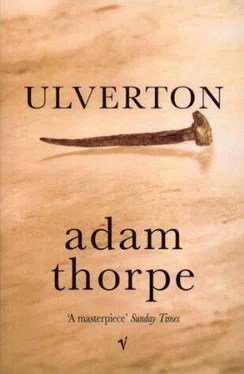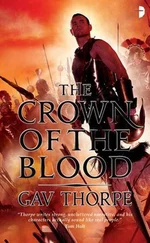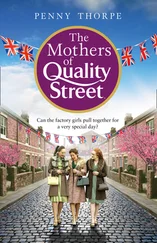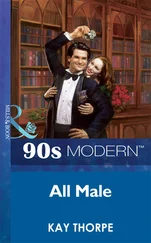I praye for thy sole an hev sed my rimes wee shll bee 5 I hopes thee hev more theyar to du the job spesely as ucle Rob hev a badd leg God spede my sonne
thy ever loving mothr
Sara Snail
P.S. I hev not red to hur al you rote God forgif thee thy tung asll soon bee lillin oute al rite if thee wernt a doomd felon I odd du a damd deal wuss for thy slandere tha tell thee nowe I hev — thy mother an hev rubbd her duggs with my — for eche leter rit may the divil taik thee as wer niver more tha a ras kel by God wen thee bee slicd upp & throne too the doggs I ool be in heavn al rite with thy mamy soein a fine net in & oute wen thee bee danglin wotch thy cokk it don go upp itt shll al rite but thee ooll be pissin thy sole in too the dust you hev yr jus reward i hev mine al rite
john Pounds tailer
yr mam think this bee a praier so itt bee
Sunday the 7th day of this inst April 1776 Surley Row Ulverton
My dear Francis,
Mr John Bate our Curate writes this for me. The Rector has paid the Coachman 1 shilling to carry it, I have always been a worthy Church attender. We are all very glad at your Pardon. I believe your Prosecutor was moved by God’s merciful example to forgive you I hope he has a fine new hat. I have Wept many times for joy, etc. Your mother is exceedingly joyous that you shall be coming home when you have the Money for the coach. Judith also was glad, and your wife also. Mr Pounds trembled with Shock as if he had seen a Ghost. This is the power of Prayer. God be with thee my son. You must not pick up any more fine hats.
Your ever loving Mother,
Sarah Shail
P.S. My black Wen remains very Sore.
HE WERE A master carpenter, but no master o’ men. He didn’t allus treat us aright. This were Abraham Webb. His father an granfer were wainwrights, but ater the fire when he were only fourteen there was that much work to do he got down an carved hisself a post in joinery so as he become the finest an most skilled hereabouts. There was that much work to cut, it lasted him years, for them as could pay wanted all manner o’ pretty cupboards, an stairs, an mantelshelves. The fire took away, what, a quarter of Ulver, in ’45. Bitter sweet for carpenters an suchlike. I were only ten year but I remimbers it. Blizzed away half o’ Main Street afore they dowsed him. Melted the rime out to Five Elms. It were a raw winter, but river were warm as a maid.
Aye, Abraham rised on that, for sure. It were his brother did the waggons, though they shared the yard. The brother’s son took over now.
I become apprenticed on account of a girl I fancied. She were milkmaid over at Barr’s farm, this side o’ river. I were jus on fourteen year, speech like turnin a gate on rusty hinges an never stuck up to a girl afore. Meets her early on the way to milkin, luggin her bucket, but it were split awmost atwo an she were that low, bein a pail she’d a-had from when she first begun, that I says to her, ‘I’ll make thee one afresh, Kath’ — thinkin as how that be the shortest way to her heart. So I lops some chestnut an bangs away, an makes such a botch she only laughs when I shows he to her. I had no skills then, he were all square, as I had nowt to bend the timber with — though she be white an soft, chestnut. I vowed then an there to learn myself joinery. How to make wood do for me what my tongue don’t.
She buckles to wi’ old George Stroude, young tanner down Fogbourne way, soon ater. Reckon as he were workin more’n his straps backerds an forruds, when I were shilly-shallyin. Aye.
Heh.
Though I bint grizzlin, mind. I got down to’t afore long. A brace o’ nippers. Aye aye.
‘That’s a Webb,’ people’d say, ‘that there’s a Webb.’ They’d point at their cupboards an say it, or in the church where he’d done poppy-heads. It weren’t nothin fancy, it weren’t fancywork like the stuff up at the Hall, an it weren’t hardly ever painted, an gilded, as I sees up at the Hall — but it were solid an agreeable, an still be, for nowt o’ Webb’s work have ever buckled or cracked. He chosed his timber like a body chooses a woman. For life, an no shilly-shallyin.
He have a-bin in the ground these five year, and I misses him. Winter of ’97 he died. Jus afore he hacked his last he’d cock a ear, abed, an hear the dingin in the yard, an he’d know what we were puttin together. He knowed when it were his own coffen. He hears the boards ripped, an sits bolt up in bed, an swears we en’t got it seasoned proper. All through the hammerin o’ the brads it were shaped beautiful in his own head, an he sweared like fury when he heared one hit off. I says sweared, but it weren’t no blasphemy, for he were a church-goer all his days. An that be at the heart o’ this story, if you were to cleft it — that, an his hardness. He were pure oak.
Now I don’t hold wi’ them as says Abraham Webb were the spit of his father in skill. His father stuck to wheels, an had other men do gates an stairs an so forth. No comparin. But I do know as Isaac Webb’s father, Jepthah Webb, bein Abraham’s granfer, made a wheel poorly so it broke an pitched a man into the next Kingdom. Aye. That were way back, up at Plumm’s, the year old dame Anne was made. But by my reckonin, Abraham had soaked up the skill so he were well nigh saturated, an hardly needed to larn in his head. He ud allus have a sweet smell about him, for he were reared in sawdust. You should’ve seed his hands, hard as a nave an as well nigh chopped, for they’d never been more’n a night away from irons, an allus dark as a gipsy’s from oak-juice, he’d felled so many.
Thank’ee.
Aye. He were right stumpy, he were, an ud allus stand straddle wise, when he weren’t at summat, wi’ them hands in his britches, axin nowt o’ narn save they get to it, an ud give a bastin to the young-uns if they gives him lip, or shambles in late. I knows, for I feeled it, an it allus drayed blood. But he were patient as the Lord wi’ an aggy line, if the boy was eager, an ud allus show us the right way. He were two men.
One treated us aright, t’other not.
Your health, sir.
Aye.
For it weren’t so much the beatin, as the hours. We’d be on a job, an he’d have us there afore cock-crow, sayin as how life was for toilin, an to get gumption a body didn’t pick it up abed, an then kep us till late a-night. I remimbers them walks — three, four, five mild — athurt the down to some farm or other, pitch dark a-winter, an nowt but a glimmerin in the east o’ summertime, an rabbit-scuts we couldn’t touch, all our irons an whatnot in our boxes, luggin it all, clatterin along, and then back to our shop an at them floorboards, or doors, or whatever, till well ater candlelight, even o’ summer. It weren’t jolly, no. There was one lad, name o’ Tuck, who didn’t ought to have bin apprenticed anyways, but he gets so down in the mouth about it all he throws his box in the river from Saddle Bridge one night, dog-tired, an goes to sea. Abraham be that fretted about the box he gets me to jump in an fish him out, an them poplars were aready turnin leaf. One didn’t say no, though. Some o’ the tools were gone acause the box were ope when I found he, though it were nowt the worse for the dowsin, an old Abraham wanted me to go back in an fish up them as were fallen out, but I were that shrammed an chatterin I couldn’t hear him, an he let me off.
There was a bradawl missin, an a truein plane, an a tenon-saw. That were sad.
Aye.
See these fingers? Rheumatics. Useless.
Couldn’t mend a broomstick now. Time was when I were that busy I could’ve waded through the shavins.
Ah well.
Old Abraham ud say to me, ‘Samuel, if thee en’t a doer, thee be good as dead.’ He were cock-eyed, mind, an this gid him a queer look. But he had the truest line of arn on us. He ud snap that lampblack an saw on it like it were butter, an the grain felled away clean like it were made that way. I could tell his sawin blind. It were music.
Читать дальше










